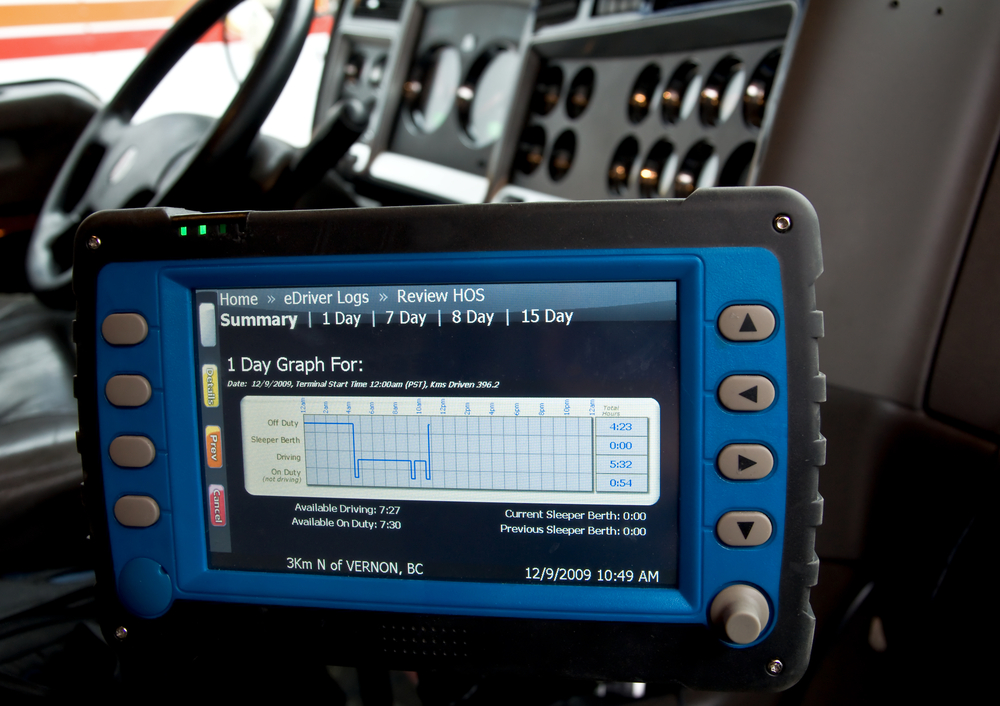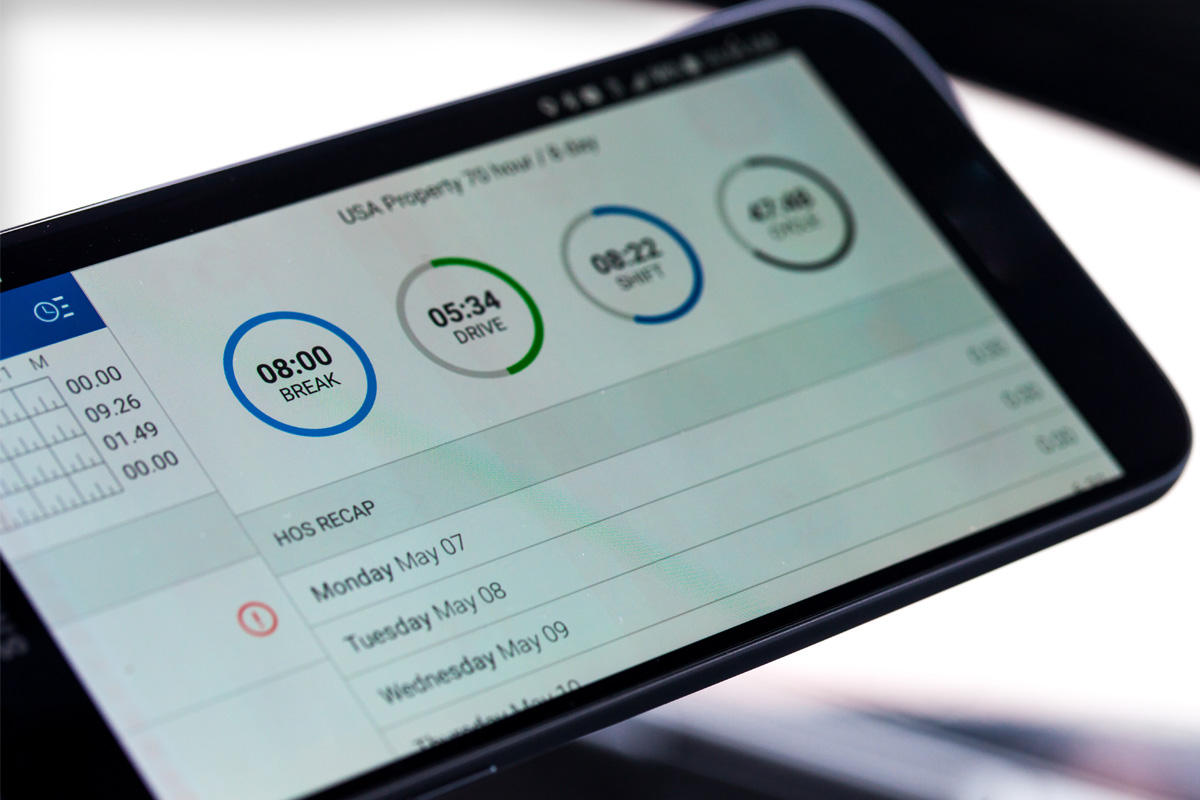Are you tired of spending endless hours filling out logbooks and worrying about compliance? Imagine a world where tracking driving hours is as simple as pressing a button.
This world isn’t a distant dream—it’s here, thanks to Electronic Logging Devices (ELDs). As a fleet manager or truck driver, you know how crucial it is to maintain accurate records. But with the changing regulations and increasing demand for efficiency, traditional methods just don’t cut it anymore.
You’ll discover how ELDs can transform your daily operations, save you time, and keep you on the right side of the law. Whether you’re new to ELDs or looking to optimize your current setup, we’ve got the insights you need. Ready to unlock a smarter way to log your hours? Let’s dive in and explore how ELDs can revolutionize your journey on the road.
What Is An Electronic Logging Device?
Have you ever found yourself wondering how truck drivers keep track of their driving hours with pinpoint accuracy? If so, you’re not alone. The answer lies in the Electronic Logging Device, commonly known as the ELD. This small, yet powerful piece of technology has reshaped the way drivers and fleet managers maintain compliance with hours-of-service regulations. But what exactly is an ELD, and why is it so crucial in the transportation industry?
An Electronic Logging Device is a digital tool that records a driver’s hours of service (HOS). It’s connected directly to the vehicle’s engine, capturing data like driving time, engine status, and location. Imagine it as a smart assistant that ensures drivers don’t exceed their legally allowed driving hours, safeguarding both them and other road users.
Think back to the days of paper logbooks. Errors were common, often leading to fines and penalties. With ELDs, accuracy is no longer a concern. They automatically record data, reducing human error and simplifying the compliance process.
Why Are Elds Important?
ELDs are crucial for maintaining safety on the roads. They help prevent fatigue-related accidents by ensuring drivers adhere to regulated rest periods. Have you ever felt the exhaustion after a long drive? ELDs ensure drivers don’t push beyond safe limits.
Compliance is another key reason for ELD adoption. The Federal Motor Carrier Safety Administration (FMCSA) mandates their use for most commercial vehicles. Failing to comply can lead to hefty fines and disruptions in operations.
How Do Elds Work?
Understanding how ELDs function can be enlightening. They connect to the vehicle’s engine and record data in real-time. This information is then displayed on a screen, allowing drivers to monitor their HOS.
Picture this: You’re a fleet manager. ELDs provide you with a dashboard view of all your drivers’ activities. You can track their progress, ensure compliance, and even improve efficiency by planning routes and schedules.
Benefits Of Using Elds
- Improved Safety:By adhering to regulated rest periods, ELDs help prevent driver fatigue.
- Enhanced Compliance:Automating log entries ensures accurate records, reducing the risk of fines.
- Operational Efficiency:Real-time data can optimize route planning and scheduling.
Can you imagine a world where road safety and efficiency are compromised? ELDs play a pivotal role in ensuring this doesn’t happen, making them indispensable in modern transportation.
Potential Challenges
While ELDs offer numerous advantages, they aren’t without challenges. Some drivers find the transition from paper logs to digital systems daunting. Have you ever struggled with new technology? It can be intimidating at first.
Privacy concerns also arise, with drivers wary of constant monitoring. It’s crucial to balance technological benefits with respecting personal boundaries.
What are your thoughts on ELDs? Do you see them as a necessary tool for safety and compliance, or do they feel like an invasion of privacy? Your perspective is valuable in this ongoing conversation about technology and transportation.
Key Features Of Elds
Electronic Logging Devices (ELDs) are crucial tools in modern transportation. They enhance safety, compliance, and efficiency for drivers and fleets. Understanding key features of ELDs helps you maximize their benefits. Let’s explore these essential features.
Automated Hours Of Service Tracking
ELDs automatically track drivers’ hours of service. This reduces manual errors and ensures accurate records. Drivers can focus on the road while the device handles compliance. Automated tracking helps avoid costly fines and penalties.
Real-time Gps Monitoring
Real-time GPS monitoring provides constant visibility of vehicle location. Fleet managers can track routes and optimize dispatch. This feature improves route efficiency and enhances safety. Real-time tracking is essential for operational success.
Driver Vehicle Inspection Reports
ELDs simplify driver vehicle inspection reports. They ensure thorough inspections with digital records. Automated processes save time and reduce paperwork. This feature boosts safety and maintains vehicle health.
Benefits For Fleet Managers
Electronic Logging Devices (ELDs) offer numerous benefits for fleet managers. They help streamline operations and improve efficiency. ELDs are crucial for maintaining compliance and enhancing safety. These advantages make ELDs a vital tool for fleet management.
Improved Compliance
ELDs ensure adherence to federal regulations. They automatically record driving hours, reducing human error. This accuracy helps avoid costly fines. Fleet managers can easily access logs for inspections. Compliance becomes a simpler task with ELDs.
Enhanced Safety
Safety is a top priority for fleet managers. ELDs monitor driver behavior and alert them to rest. This reduces the risk of fatigue-related accidents. Real-time data helps identify unsafe driving patterns. Managers can intervene promptly to prevent mishaps.
Cost Efficiency
ELDs contribute to cost savings in several ways. They reduce paperwork, saving administrative time and resources. Fuel efficiency improves with better route management. ELDs also decrease vehicle maintenance costs by monitoring engine health. These savings positively impact the bottom line.

Credit: www.truckeservices.com
Impact On Drivers
The introduction of Electronic Logging Devices (ELDs) has brought significant changes to the daily lives of truck drivers. While some drivers initially resisted this shift, many now find that ELDs offer surprising benefits. Understanding their impact can help you leverage these devices to your advantage and ensure a smoother ride.
Ease Of Use
ELDs are designed with simplicity in mind, making them easy to use even for those less tech-savvy. Drivers can quickly learn how to navigate these devices with minimal training. This ease of use means less time spent on figuring out technology and more time focused on the road.
Consider a driver who once struggled with manual logbooks. With ELDs, they can now input data with a few taps, reducing stress and errors. How might this simplicity improve your own driving routine?
Reduced Paperwork
Gone are the days of juggling piles of paperwork. ELDs automatically record driving hours and generate reports, drastically cutting down on administrative tasks. This reduction in paperwork saves time, allowing drivers to focus on their primary job—driving safely.
Think about how much time you’ve spent filling out forms at the end of a long day. With ELDs, that burden is lifted, freeing up valuable hours for rest or leisure. What would you do with the extra time saved?
Increased Accountability
ELDs ensure that all driving hours are accurately logged, promoting accountability. This transparency helps in maintaining compliance with safety regulations. For drivers, this means fewer disputes over hours worked and a clearer record of their driving history.
Imagine no longer needing to justify your hours to your employer. ELDs provide a reliable account of your driving time, which can lead to better trust and communication with your company. How could increased accountability benefit your professional relationships?
Embracing ELDs doesn’t just mean adapting to new technology; it offers practical advantages that can enhance your driving experience. By embracing these tools, you’re not just complying with regulations—you’re also setting yourself up for success on the road.
Challenges And Concerns
Electronic Logging Devices (ELDs) have transformed how the trucking industry operates, ensuring compliance and enhancing safety. However, this transformation isn’t without its hurdles. Truck drivers and fleet managers often find themselves grappling with various challenges and concerns associated with ELDs.
Privacy Issues
Privacy is a significant concern when it comes to ELDs. These devices track your every move, recording data about your location, driving hours, and more. It’s like having a camera following you around all day. This level of scrutiny can make drivers uncomfortable, and rightfully so. Would you feel at ease knowing your employer could track your every stop?
However, it’s essential to recognize that this data can improve your safety and efficiency. For instance, if you encounter a breakdown, your exact location can be relayed to get help quickly. But still, the balance between safety and privacy remains a topic for ongoing discussion.
Technology Adoption
Adopting new technology can be daunting, especially if you’re used to paper logs. It’s not just about installing a device; it’s about changing habits. Imagine being a driver who’s been on the road for decades, and suddenly, you’re handed a gadget that you must learn to use overnight.
This transition can be challenging. Training sessions can help bridge the gap, but they require time and resources. Are you prepared to invest in learning this new system? Embracing change can be tough, but it’s a step towards a more efficient future.
Initial Costs
The initial costs of implementing ELDs can be a burden, particularly for small fleets. The price of the device itself, along with installation and training, can add up quickly. It’s a considerable investment, and not everyone is ready to make it at the drop of a hat.
However, this upfront cost can be offset by the long-term benefits. Reduced paperwork and fewer hours spent on compliance checks can lead to significant savings. Are you willing to look at the bigger picture and consider the potential return on investment?

Credit: insights.workwave.com
Future Of Fleet Management With Elds
The future of fleet management is rapidly evolving, and Electronic Logging Devices (ELDs) are at the heart of this transformation. These devices, initially designed to monitor driving hours, are now paving the way for smarter, more efficient fleet operations. Imagine a world where fleet management is not just about tracking vehicles but optimizing every aspect of their journey. That’s where ELDs come into play, offering a glimpse into a future where technology takes the driver’s seat.
Integration With Ai And Iot
ELDs are no longer standalone tools; they are integral parts of a larger technological ecosystem. By integrating with Artificial Intelligence (AI) and the Internet of Things (IoT), ELDs can offer predictive analytics and real-time insights. Picture this: your fleet can anticipate traffic patterns or detect mechanical issues before they become problems. This integration means fewer surprises and more control over your operations. Have you considered how much time and money you could save with smarter decision-making?
Potential For Autonomous Vehicles
The rise of autonomous vehicles is not just science fiction anymore. ELDs play a crucial role in this transition by providing the data needed to safely automate driving. As these vehicles become more prevalent, ELDs will ensure they adhere to safety standards and regulations. Imagine a fleet that drives itself, reducing human error and enhancing efficiency. Could autonomous vehicles be the answer to driver shortages and operational costs?
Sustainability And Environmental Impact
ELDs contribute to a greener future by optimizing routes and reducing fuel consumption. By analyzing data on driving habits and vehicle performance, they help fleets minimize environmental impact. Have you thought about the positive effects on your carbon footprint? Moreover, as regulations become stricter, ELDs ensure compliance with environmental standards. The push towards sustainability isn’t just a trend; it’s a necessity that ELDs can help you meet.
Choosing The Right Eld Solution
Choosing the right Electronic Logging Device (ELD) solution is crucial for the seamless operation of your fleet. With numerous options available, making the best choice can be daunting. However, focusing on key aspects can simplify the process and ensure you pick a solution that fits your needs perfectly. Let’s explore essential factors to consider when selecting an ELD solution.
Compatibility With Fleet
Before diving into the features of an ELD, consider its compatibility with your fleet. Does it work well with the variety of vehicles you have? Some ELDs are designed specifically for certain types of trucks, which might limit their usefulness if your fleet is diverse.
Talk to your drivers and technicians about what kind of systems work best. Their insights can save you from investing in a system that doesn’t mesh with your vehicles. You wouldn’t want to purchase a solution, only to find out it requires additional software or hardware modifications.
Ease Of Installation
Installation should be straightforward. A complex setup can lead to downtime and frustration. Opt for solutions that offer user-friendly installation processes. Many providers boast quick plug-and-play systems.
Have you ever spent hours trying to install a device only to realize it’s more complicated than advertised? Seek feedback from other fleet managers about their installation experiences. This can offer you real-world insights into potential challenges.
Customer Support And Training
Imagine encountering a technical issue with your ELD and having no one to turn to for immediate help. Robust customer support can be a lifesaver. Check if the provider offers 24/7 support and whether their team is responsive and knowledgeable.
Training is equally important. An ELD is only as effective as its users. Ensure that the provider offers comprehensive training sessions. Interactive webinars or tutorials can empower your team to utilize the device efficiently, maximizing its benefits.
Choosing the right ELD solution isn’t just about the device itself; it’s about how well it integrates into your existing systems, the ease with which it can be set up, and the support you receive from the provider. What matters most to you in an ELD solution? Your unique needs should guide your decision-making process.

Credit: www.hutchsystems.com
Frequently Asked Questions
What Is An Electronic Logging Device?
An Electronic Logging Device (ELD) is a digital solution that records a driver’s hours of service. It automatically tracks driving time and ensures compliance with regulations. ELDs replace paper logbooks, offering more accuracy and efficiency. They are essential for maintaining safety and legal compliance in the transportation industry.
How Does An Eld Work?
An ELD connects to a vehicle’s engine to record driving time. It captures data such as engine hours, vehicle movement, and location. This information is then displayed to the driver and can be shared with fleet managers. The device ensures accurate record-keeping and compliance with hours-of-service rules.
Why Are Elds Important For Truck Drivers?
ELDs improve safety and compliance by accurately tracking driving hours. They reduce paperwork and minimize errors associated with manual logbooks. By ensuring adherence to hours-of-service regulations, ELDs help prevent driver fatigue. This enhances road safety and efficiency in the trucking industry.
Do All Vehicles Need An Eld?
Most commercial motor vehicles operating in the U. S. must have an ELD. There are exemptions, such as for vehicles manufactured before the year 2000. Additionally, certain short-haul drivers and those using timecards may be exempt. It’s crucial to understand specific requirements based on your fleet’s operations.
Conclusion
Electronic Logging Devices (ELDs) offer many benefits for trucking companies. They improve safety by reducing driver fatigue. ELDs also help in tracking hours accurately. This ensures compliance with regulations. They also save time on paperwork. Plus, they provide real-time data for better management.
With ELDs, you can focus more on driving safely. They make the process efficient and simple. Embrace ELDs for a smoother operation. They are a valuable tool for the transportation industry. Make sure to choose the right ELD for your needs.
It can greatly enhance your fleet’s performance.





